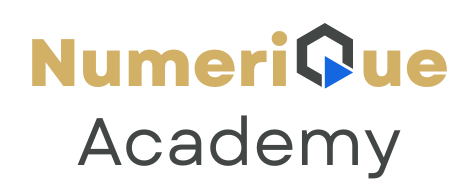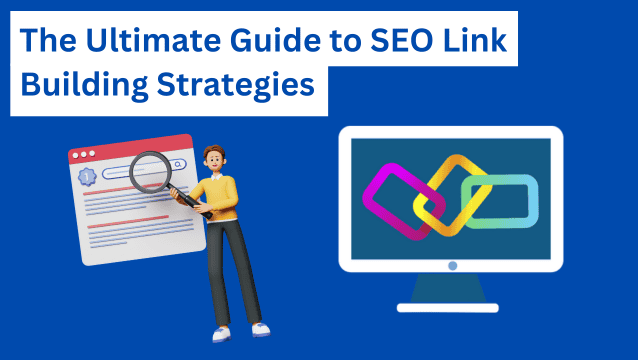The SEO world has been ever-evolving, but if there’s something in SEO that has always remained constant – backlinks. Yes, backlinks are the lifeblood of your website’s authority. Even though Google’s algorithms get sophisticated year on year, the trust signals that different types of backlinks in SEO transmits have always been a crucial aspect of determining the search rankings.
But in 2025, link building is no longer about quantity over quality. It’s an art—a strategic process of earning endorsements from reputable, relevant websites. For a digital academy like ours, building a strong backlink profile isn’t just about SEO; it’s about establishing our expertise and authority in the online education space.
This playbook will guide you through the essential link building strategies for 2025, from simple wins for beginners to advanced tactics that will transform your website into a backlink magnet.
Why Are Backlinks Still a Critical Ranking Factor?
Think of a backlink as a vote of confidence. When a high-authority website links to your content, it signals to Google that your page is trustworthy, valuable, and relevant. These “votes” are a cornerstone of Google’s PageRank algorithm. A diverse and high-quality backlink profile tells search engines that your website is a reliable source of information, which in turn boosts your authority and helps you climb the search results.
In 2025, Google’s emphasis on E-E-A-T (Experience, Expertise, Authoritativeness, and Trust) makes backlinks even more vital. Links from trusted industry leaders, experts, and publications are a direct way to demonstrate your authority and build the trust that Google craves.
The Difference Between “Good” and “Bad” Backlinks
Before we dive into the strategies, it’s crucial to understand this distinction.
- Good Backlinks: These links come from websites that are authoritative, relevant to your niche, and have a strong reputation. They are placed naturally within the content and have a high “trust” score in the eyes of search engines. Think of a link from a respected industry publication or a well-known blogger in your field.
- Bad Backlinks: These links are often acquired through spammy or manipulative tactics (e.g., paid link schemes, link farms, or irrelevant directories). They can harm your site’s SEO and may even lead to a Google penalty. The mantra for 2025 is clear: if a link feels unnatural or too easy to get, it’s probably a bad one.
The 2025 Link Building Playbook: Actionable Strategies
- The Foundation: Create Link-Worthy Content (The Passive Approach)
You can’t build a house without a strong foundation, and you can’t build a backlink profile without remarkable content. This is the single most important part of any link building strategy. If your content is truly exceptional, people will link to it naturally.
- Data-Driven Research: Conduct original research, surveys, or case studies. Journalists and bloggers are always looking for new data and statistics to cite.
- Ultimate Guides and Cornerstone Content: Create comprehensive, long-form guides that are the definitive resource on a specific topic. If you’re in digital marketing, a guide to “Google’s 2025 Algorithm Updates” would be a prime example.
- Infographics and Visual Assets: Visual content is highly shareable and easy to link to. Condense complex information into an appealing infographic that others can embed on their sites.
- Low-Hanging Fruit for Beginners: The “Easy Wins”
These are great starting points for those new to link building.
- Unlinked Brand Mentions: Use tools like Google Alerts or Ahrefs Alerts to monitor for mentions of your brand name online. When a site mentions you without linking, reach out and politely ask them to add a link.
- Guest Blogging: This classic strategy remains highly effective. Find reputable websites in your niche that accept guest posts. Create high-quality, non-promotional content that adds genuine value to their audience. In return, you can often include a link back to your site in your author bio or within the article itself.
- Competitor Backlink Analysis: Use a tool like Ahrefs or SEMrush to see who is linking to your competitors. This can uncover great opportunities. If a site links to a competitor’s blog post on a topic you’ve also covered, you can reach out and suggest your content as a valuable alternative or addition.
- Advanced Strategies for Backlink Masters
Once you have the basics down, it’s time to move on to more powerful tactics.
- Broken Link Building: This is a fantastic “win-win” strategy. Find relevant websites that have broken (404) links on their pages. Use a tool like Check My Links browser extension to find them. Once you’ve identified a broken link, create a piece of content that is a suitable replacement, and then contact the webmaster to let them know about the broken link and suggest your new content as a fix.
- Resource Page Link Building: Many websites have “resources” or “recommended reading” pages. Find these pages in your niche by using search queries like [your niche] + “resources”, [your niche] + “recommended reading”, or [your niche] + “links”. If your content is a good fit, contact the site owner and pitch your resource for inclusion.
- Digital PR: This strategy involves creating something newsworthy—an original study, a viral infographic, or a compelling data visualization—and pitching it to journalists and publications. This can result in high-authority links from major news outlets, which are invaluable for your E-E-A-T.
Tools to Help You Become a Backlink Master
- Ahrefs or SEMrush: These are the industry standard tools for competitor analysis, keyword research, and backlink monitoring.
- Hunter.io: Find contact information for website owners and editors to streamline your outreach efforts.
- Google Search Console: Monitor your site’s technical health and identify crawl errors and broken links.
Building a strong backlink profile is a marathon, not a sprint. It requires patience, persistence, and a genuine commitment to creating high-quality content that people want to link to. By following this playbook and focusing on earning quality over quantity, you’ll not only improve your search rankings but also build a powerful reputation as an authority in your field.

